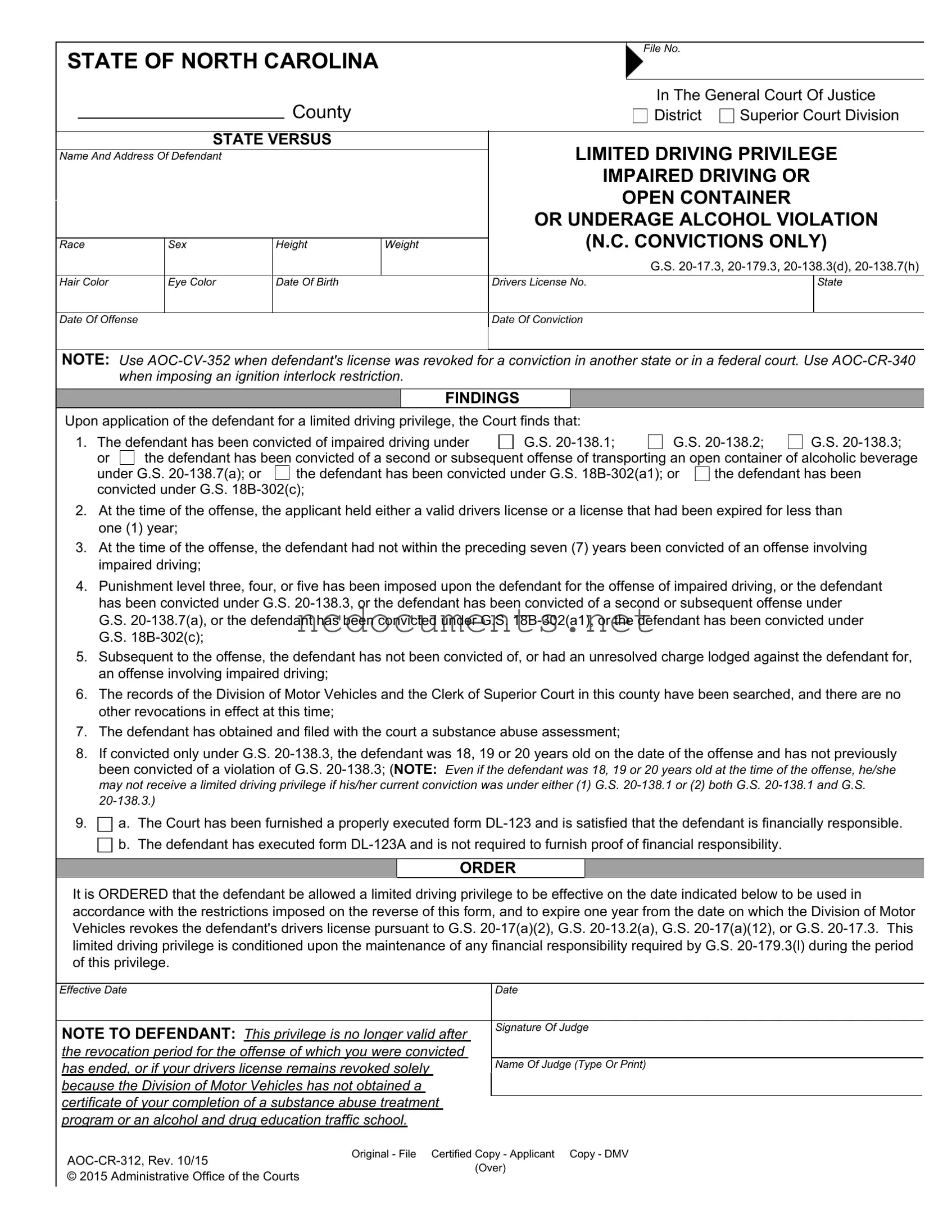The Limited Driving Privilege (LDP) form in North Carolina shares similarities with the Occupational License form. Both documents serve as temporary driving permits for individuals whose regular licenses have been suspended or revoked. The Occupational License allows individuals to drive for work-related purposes, while the LDP is specifically designed for those convicted of certain offenses, such as impaired driving. Both forms require the applicant to demonstrate a need for driving privileges and often involve restrictions on when and where the individual can drive.
Another related document is the Ignition Interlock License. Like the LDP, this license is issued to individuals who have faced consequences due to impaired driving. The Ignition Interlock License allows a person to drive only if their vehicle is equipped with an ignition interlock device. This device measures blood alcohol content before allowing the vehicle to start. Both licenses aim to promote responsible driving behavior while granting limited driving privileges under specific conditions.
The Conditional License is also comparable to the Driving Privileges Letter. This license is often issued to individuals who have had their driving privileges revoked due to various offenses, including traffic violations. Similar to the LDP, the Conditional License allows the individual to drive under certain circumstances, such as for work, education, or medical appointments. Both documents require the individual to adhere to strict guidelines to maintain their limited driving rights.
The Revocation Notice is another document that bears similarities to the Driving Privileges Letter. While the Revocation Notice informs individuals of their license suspension, it often outlines the steps needed to regain driving privileges. The LDP, on the other hand, provides a temporary solution for individuals who have been convicted of specific offenses, allowing them to drive legally during their revocation period. Both documents emphasize the importance of compliance with legal requirements to restore full driving rights.
The Substance Abuse Assessment form is also relevant in this context. Individuals seeking a Limited Driving Privilege must submit proof of a substance abuse assessment. This requirement aligns with the goals of both documents, as they aim to ensure that individuals are taking steps to address any underlying issues related to substance use. The assessment serves as a prerequisite for receiving limited driving privileges, demonstrating a commitment to responsible behavior.
The Certificate of Completion for an Alcohol and Drug Education Traffic School is another document that complements the Driving Privileges Letter. This certificate may be required for individuals seeking to regain their driving privileges after a conviction related to impaired driving. Both the certificate and the LDP highlight the importance of education and rehabilitation in the process of restoring driving rights, reflecting a focus on preventing future offenses.
Understanding the various documents associated with pet ownership, such as the Puppy Bill of Sale, is essential for ensuring a smooth transition in ownership. This form not only serves as proof of purchase but also outlines critical details about the dog, which can prevent misunderstandings and provide clarity for both parties involved in the transaction.
Lastly, the Financial Responsibility Form (DL-123) is similar to the Driving Privileges Letter in that it establishes proof of financial responsibility. This form is necessary for individuals applying for limited driving privileges, as it verifies that they have the required insurance coverage. Both documents emphasize the importance of being financially responsible while driving, ensuring that individuals can cover potential damages in case of an accident.

